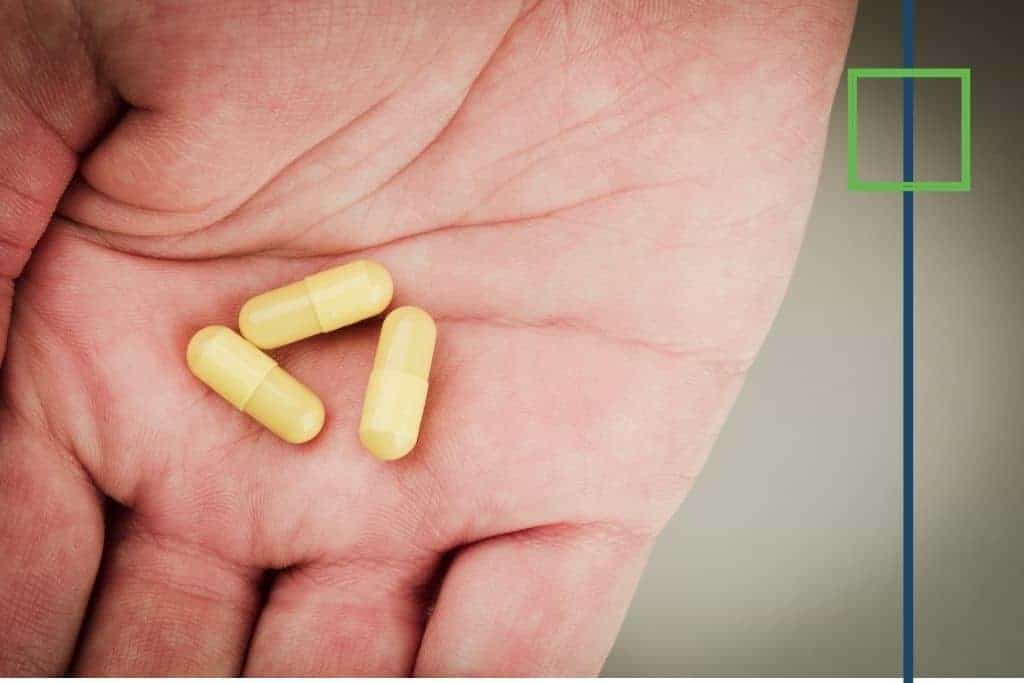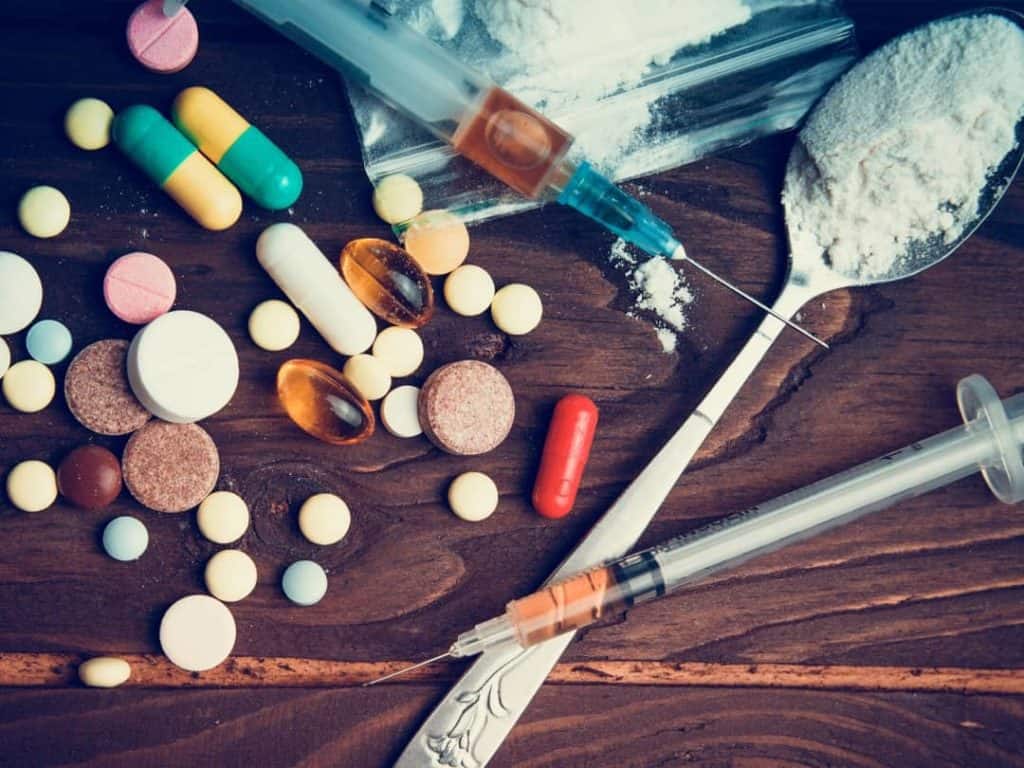What is Ritalin?
Ritalin. or Methylphenidate hydrochloride—the generic for Ritalin, is a stimulant prescribed for attention deficit hyperactivity disorder (ADHD) treatment and to manage symptoms of narcolepsy (sleep disorder). It affects the parts of the brain and central nervous system (CNS) that control impulses and hyperactivity. However, this prescription drug is prone to abuse — begging the questions, “can you inject Ritalin?” and “can you snort Ritalin?” Ritalin and Adderall are called study drugs because they are inappropriately used to increase the user’s attentiveness and work output. It is also often abused as a party drug just like Adderall and considered a rave energy pill because it increases users’ focus and energy, producing bursts of activity and talkativeness.
Ritalin is one of the trade names for the drug known as methylphenidate. Other brand names can include Concerta, Methylin, and Metadate. Methylphenidate was first approved by the U.S. Food and Drug Administration in 1955 for treating what was then referred to as hyperactivity. In addition, its ability to improve concentration means some people use it to boost cognitive ability. Methylphenidate (Ritalin) has been linked to a low rate of serum aminotransferase elevations during therapy and rare instances of acute, clinically apparent liver injury, generally after its intravenous abuse.


Get Your Life Back
Find Hope & Recovery. Get Safe Comfortable Detox, Addiction Rehab & Dual Diagnosis High-Quality Care.
Hotline(844) 597-1011Methylphenidate (Ritalin) is a controlled substance (Schedule II) and has abuse potential. If you have a history of substance use problems, it’s important to let your doctor know before taking this medication. Common side effects include headache, insomnia, irritability, palpitations, tachycardia, nasal stuffiness, decreased appetite, nausea, cough, and rash. Uncommon, but potentially severe adverse events include psychotic symptoms, cardiovascular events, abuse and dependence, and, with long-term therapy in children, reduced adult height.
Ritalin Uses
Ritalin is used to treat attention deficit disorder (ADD), attention deficit hyperactivity disorder (ADHD), and narcolepsy (sleep disorder). Ritalin should be used as a part of a total treatment program for ADHD that may include counseling or other therapies. Off-label uses of methylphenidate (Ritalin) include treatment for fatigue in patients with cancer, refractory depression in the geriatric population, apathy in Alzheimer’s disease, and enhancing cognitive performance (e.g., memory). The efficacy of methylphenidate (Ritalin) for its off-label uses varies from limited to moderate.
Ritalin Abuse and Addiction
When Ritalin is used intranasally (crushed and snorted), It has receptor effects similar to those of cocaine. A rapid release of synaptic dopamine occurs, producing subjective effects of an instant “high” and an intensely gratifying euphoria. Thus, the clinical picture of abuse is often quite similar to that of cocaine. Research has found that the localization of Ritalin binding with dopaminergic pathways was “identical” to that of cocaine and a similar “high” was described by patients receiving both drugs intravenously (.dissolving the drug and injecting).
Ritalin can be transformed from a therapeutic agent to an abused and addictive substance when this drug is taken in excessive amounts and used through intranasal and intravenous routes. Various investigators have supported this hypothesis by comparing the kinetic time course in the brain with the “high” subjects’ experience. Specifically, when Ritalin is given intravenously, subjects reported “highs” paralleling the kinetics of cocaine rather than the kinetics of methylphenidate. As mentioned previously, when administered intravenously, these drugs are indistinguishable and have a parallel rate of uptake into the brain (cocaine: 4–6 minutes, methylphenidate: 4–8 minutes).
Get Help. Get Better. Get Your Life Back.
Searching for Accredited Drug and Alcohol Rehab Centers Near You?
Even if you have failed previously and relapsed, or are in the middle of a difficult crisis, we stand ready to support you. Our trusted behavioral health specialists will not give up on you. When you feel ready or just want someone to speak to about therapy alternatives to change your life call us. Even if we cannot assist you, we will lead you to wherever you can get support. There is no obligation. Call our hotline today.
(844) 597-1011Signs of Ritalin Abuse
Ritalin is addictive, especially when used without a prescription. It is a drug of abuse among some because they believe or have experienced that it:
- Promotes improved concentration
- Increases mental sharpness
- Helps a person manage a heavy workload
- Stimulates weight loss
- Gets a person high
The drugs Ritalin and Adderall may be so intertwined in the public mind. Psychological, physical, and behavioral signs of Ritalin addiction include:
- Anxiety
- Low appetite
- Irritability
- Rapid heart rate
- Dehydration
- Panic attacks
- Suspiciousness
- Depression
- Crushing and snorting Ritalin
- Asking other people for their Ritalin pills
- Stealing, lying, and/or doctor shopping to get extra Ritalin pills

Addiction to this drug is usually a result of illegal Ritalin abuse. Ritalin addiction is more likely to happen if you take it without a legitimate medical reason, take it in very high doses, or have a previous history of alcohol and drug abuse.
Ritalin has very different effects on people with ADHD than the rest of the population, serving to help sufferers focus more quickly and stay relaxed and calm. They don’t really experience this drug’s stimulant or euphoric qualities that make it so attractive to other people.
After recognizing signs of Ritalin addiction, a loved one may want to recommend treatment to the affected person. Though Ritalin addiction can cause significant damage to a person’s life, most of its effects can be effectively reversed with comprehensive treatment.
How Long For Ritalin To Leave Your System
As with any drug, there are individual factors that influence how long Ritalin stays in your system. The dose you use and how you use it can influence how long Ritalin stays in your system. If you regularly use Ritalin, it may take longer for it to be eliminated from your system. Younger people and healthier people tend to eliminate drugs more quickly. If someone is older or has pre-existing health conditions or organ function impairment, it may take their body longer to eliminate Ritalin. People with faster metabolisms and heavier or bigger people also tend to eliminate Ritalin faster. Physically active and well-hydrated people will also have a faster rate of elimination, in most cases.
First-class Facilities & Amenities
World-class High-Quality Addiction & Mental Health Rehabilitation Treatment
Rehab Centers TourRenowned Addiction Centers. Serene Private Facilities. Inpatient rehab programs vary.
Addiction Helpline(844) 597-1011Proven recovery success experience, backed by a Team w/ History of:
15+
Years of Unified Experience
100s
5-Star Reviews Across Our Centers
10K
Recovery Success Stories Across Our Network
- Low Patient to Therapist Ratio
- Onsite Medical Detox Center
- Comprehensive Dual-Diagnosis Treatment
- Complimentary Family & Alumni Programs
- Coaching, Recovery & Personal Development Events
Drug Tests for Ritalin
There are many variables that can play a role in how long Ritalin, or any drug, for that matter, continue to be active in the body after it’s taken. An obvious one is that everyone’s body is different. The rate at which medications and other substances are used up in the body depends on things like your personal rate of metabolism, age, weight, and percentage of body fat. How physically active you are, how often you take the substance, or even how hydrated you are, can also impact how long it takes medication to clear. Some health conditions can play a role in the rate at which drugs are metabolized by the body.
Does Ritalin show up in urine tests?
Urine tests are commonly used for drug screening. During a urine test for Ritalin, a sample of urine is given in a collection cup. The collected urine is tested for the presence of Ritalin and ritalinic acid, the main metabolite of Ritalin. Ritalin and ritalinic acid can be detected in your urine for 1–3 days.
Does Ritalin show up on saliva drug tests?
During a saliva drug test, saliva is swabbed from your mouth and tested for the presence of Ritalin or ritalinic acid. Ritalin and ritalinic acid can be detected in the saliva for up to 36 hours.
Does Ritalin show up in the hair follicle test?
During a hair drug test, a strand of hair with the follicle is taken and tested for signs of drug use. Ritalin can be detected in hair for 30 days. Some substances can be detected in hair for up to 90 days.
How long does Ritalin show up in blood drug tests?
During a blood drug test, a small amount of blood is taken for drug testing. Because of the short half-life of Ritalin and ritalinic acid, they are only detectable in the blood for about 24 hours. Blood tests are not typically done to test for Ritalin.

What is the Half Life of Ritalin?
According to the FDA, the half-life of Ritalin is around 3.5 hours, on average. The average half-life range is anywhere from 1.3 to 7.7 hours in adults. In children, the average half-life of Ritalin is around 2.5 hours, but it can range anywhere from 1.5 to 5.0 hours. Based on these half-lives, Ritalin can stay in the body for anywhere from one to two days, which is a relatively short time. Ritalin is metabolized quickly even when an extended-release version is taken.
World-class, Accredited, 5-Star Reviewed, Effective Addiction & Mental Health Programs. Complete Behavioral Health Inpatient Rehab, Detox plus Co-occuring Disorders Therapy.
CALL(844) 597-1011End the Addiction Pain. End the Emotional Rollercoaster. Get Your Life Back. Start Drug, Alcohol & Dual Diagnosis Mental Health Treatment Now. Get Free No-obligation Guidance by Substance Abuse Specialists Who Understand Addiction & Mental Health Recovery & Know How to Help.
Treatment for Ritalin Addiction
There is a strong link between mental health and substance abuse. Individuals who struggle with mood disorders like depression and anxiety are more susceptible to developing an addiction to drugs or alcohol, often to self-medicate symptoms of their underlying mental health condition. These co-occurring disorders can make each other worse without proper treatment.
To answer the question “how long do Ritalin withdrawal symptoms last?” it’s crucial to first get an accurate assessment of all the symptoms. When the symptoms have been evaluated by a mental health professional, it may be determined that another form of mental condition is present and needs a particular type of treatment. Very often, some combination of psychotherapy, medication, and/or lifestyle changes are effective for coping with functional.
Medically-Assisted Detox
Detox is often considered the first stage of treatment. It will help you navigate the complicated process of Ritalin withdrawal, but it doesn’t address patterns of thought and behavior that contribute to drug use. Various treatment approaches and settings can help provide the ongoing support necessary to maintain long-term sobriety after you complete detox.
Cravings are very common during detox and can be challenging to overcome. This often leads to relapse. Constant medical care provided during inpatient treatment helps prevent relapse. Clinicians can provide necessary medication and medical expertise to lessen cravings and the effects of Ritalin withdrawals.
Psychotherapy for Depression
Several different modalities of psychotherapy have been used in the treatment of mental health disorders along with addiction, including:
- Cognitive Behavioral Therapy (CBT) – is an effective treatment that involves making changes in both the patterns of negative thoughts and the behavioral routines which are affecting the daily life of the depressed person for various forms of depression.
- Dialectical Behavioral Therapy – is a comprehensive mental health and substance abuse treatment program whose ultimate goal is to aid patients in their efforts to build a life worth living. The main goal of DBT is to help a person develop what is referred to as a “clear mind.”
- Person-Centered Therapy – is a strategy that allows and encourages clients to understand and resolve their concerns in a safe, supportive environment.
- Solution Focused Therapy – is an approach interested in solutions that can be quickly implemented with a simple first step leading to further positive consequences.
Dual Diagnosis Treatment
Prescription drug abuse and mental health disorders often co-occur. In many cases, traumatic experiences can result in a mental health disorder and substance abuse. Dual diagnosis rehabilitation treats both of these issues together. The best approach for the treatment of dual diagnosis is an integrated system. In this strategy, both the substance abuse problem and the mental disorder are treated simultaneously. Regardless of which diagnosis (mental health or substance abuse problem) came first, long-term recovery will depend largely on the treatment for both disorders done by the same team or provider.
Medication-Assisted Treatments
Medication-Assisted Treatments (MAT) for alcohol use disorder and mental health disorders are commonly used in conjunction with one another. This includes the use of medications and other medical procedures. During your rehab, the staff from your treatment facility will help you identify what caused your addiction and teach you skills that will help you change your behavior patterns and challenge the negative thoughts that led to your addiction. Sometimes, the pressures and problems in your life lead you to rely on substances to help you forget about them momentarily.
If you or a loved one are struggling with long-term prescription drug abuse and a co-occurring mental health condition such as depression, contact one of our helpful treatment specialists today. We Level Up can provide information on dual diagnosis and detox programs that may fit your specific needs. “How long for Ritalin to leave the system?” is a question that many abusers of the drug may have. Our counselors know what you are going through and will answer any of your questions.

Experience Transformative Recovery at We Level Up Treatment Centers.
See our authentic success stories. Get inspired. Get the help you deserve.
Start a New Life
Begin with a free call to an addiction & behavioral health treatment advisor. Learn more about our dual-diagnosis programs. The We Level Up Treatment Center Network delivers recovery programs that vary by each treatment facility. Call to learn more.
- Personalized Care
- Caring Accountable Staff
- World-class Amenities
- Licensed & Accredited
- Renowned w/ 100s 5-Star Reviews
We’ll Call You
Sources:
[1] NCBI – https://www.ncbi.nlm.nih.gov/books/NBK547941/
[2] NCBI – https://www.ncbi.nlm.nih.gov/pmc/articles/PMC181133/
[3] Prescription Drug Addiction – We level Up NJ


